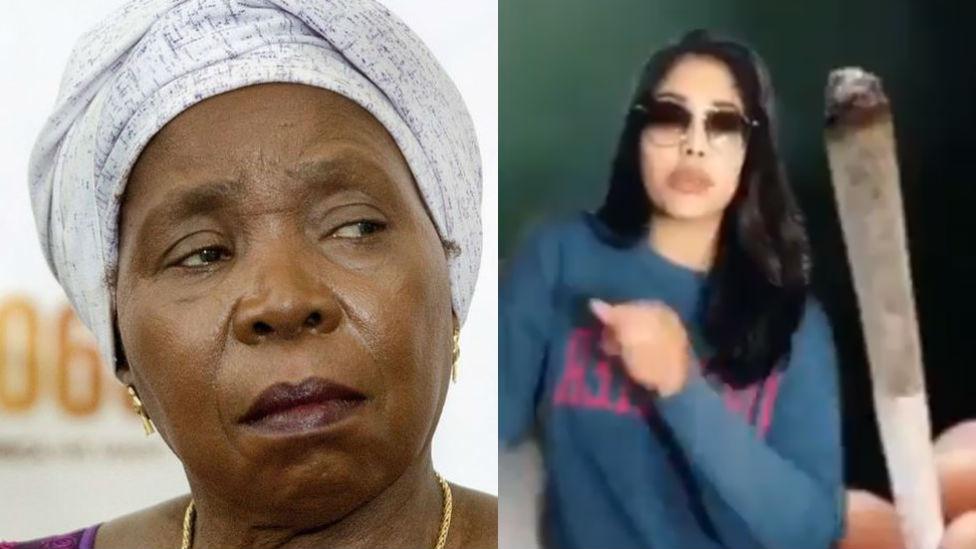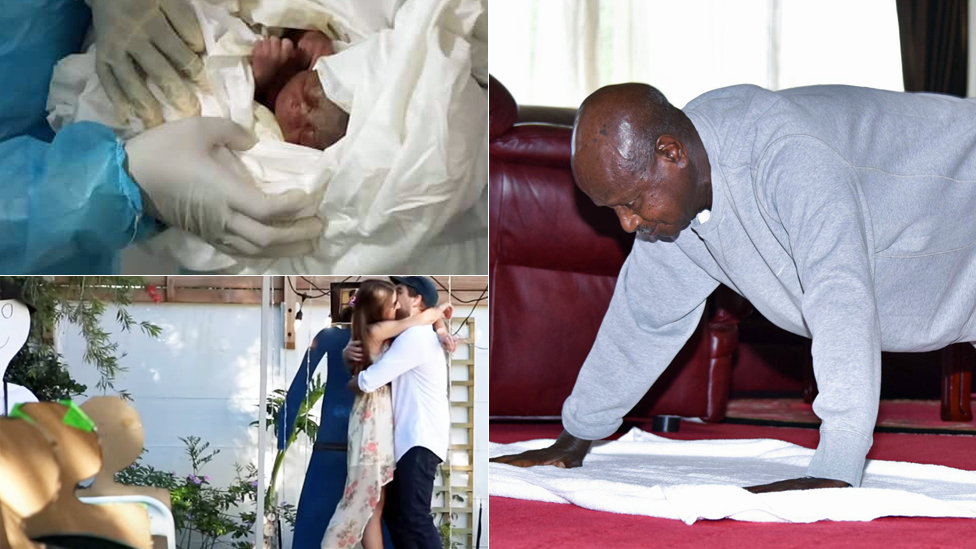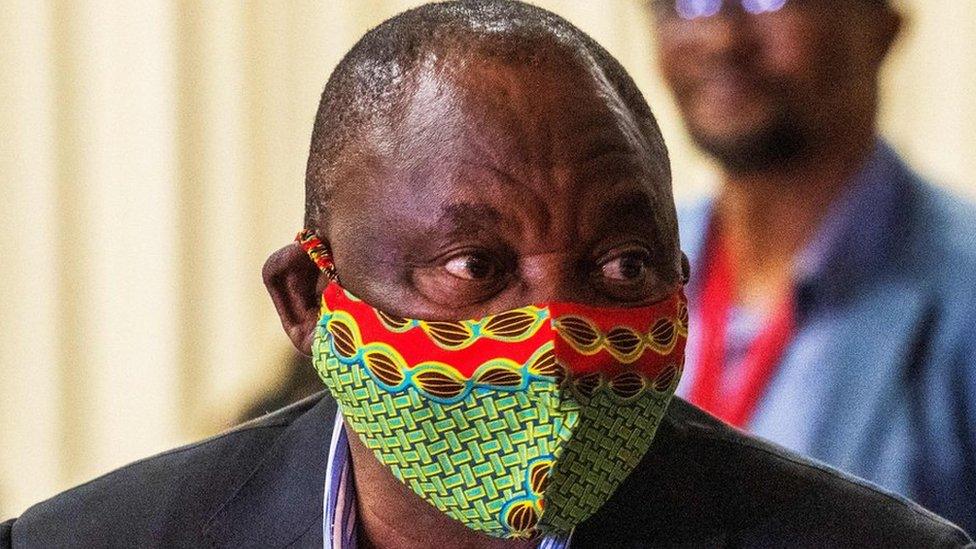South African minister embraces 'zol' meme that mocks her cannabis slang
- Published

Nkosazana Dlamini-Zuma's reaction was more favourable than expected
A viral song sampling a verbal warning about the dangers of cannabis during the pandemic has been embraced by the politician who said it.
South Africans were tickled by the outdated slang word "zol", meaning a joint or blunt, that Nkosazana Dlamini-Zuma used in a speech.
"When people zol they put saliva on the paper," one snippet of her speech goes.
"And when they share that zol... they are moving saliva from one to the other," it continues.
DJ Max Hurrell then laid these vocal samples over a track he describes to the BBC as "house and afro with a driving and powerful bassline":
That was at the start of May, and since then the song has been shared widely on social media:
Allow X content?
This article contains content provided by X. We ask for your permission before anything is loaded, as they may be using cookies and other technologies. You may want to read X’s cookie policy, external and privacy policy, external before accepting. To view this content choose ‘accept and continue’.
Allow X content?
This article contains content provided by X. We ask for your permission before anything is loaded, as they may be using cookies and other technologies. You may want to read X’s cookie policy, external and privacy policy, external before accepting. To view this content choose ‘accept and continue’.
Then on Wednesday Dr Dlamini-Zuma, whose official title is Minister of Cooperative Governance and Traditional Affairs, responded on Twitter.
"Who is this Max Hurrell fellow? We just need to talk," she tweeted.
Allow X content?
This article contains content provided by X. We ask for your permission before anything is loaded, as they may be using cookies and other technologies. You may want to read X’s cookie policy, external and privacy policy, external before accepting. To view this content choose ‘accept and continue’.
It wasn't something the DJ expected to see.
"I honestly made [the song] just to make people laugh during a tough time," Max Hurrell told the BBC.
"I've gotten loads of thank yous from people saying they needed the 'mood-lifter' and so I am grateful that I was able to help people feel better," the DJ adds.
'Not in malice'
He told the BBC he had a "brief conversation" with Dr Dlamini-Zuma later that day, and that "nothing will stop the lockdown anthem".
"The minister has no problem with the creativity of artists and she knows that it was not done in malice," her spokesman Lungi Mtshali told the BBC.
The BBC's Pumza Fihlani in Johannesburg says the politician's use of the word "zol" was seen as endearing, and a genuine attempt to relate to a different audience while trying to explain a government health message.
South Africa has broadly won praise for how it has handled the pandemic. It has one of the world's strictest lockdowns, which bans the sale of cigarettes and alcohol.
Though official guidance from the World Health Organization does not specifically mention the sharing of cigarettes, it does say "small droplets from the nose or mouth, which are expelled when a person with Covid-19 coughs, sneezes, or speaks" causes the virus to spread from person to person, external.
On video-sharing site TikTok alone, clips tagged #whenpeoplezol have so far attracted a total of 1.5m views.
- Published12 April 2020

- Published4 May 2020

- Published12 May 2020

- Published9 July 2024
